
Ensuring a diet that maintains your heart’s well-being involves incorporating foods that actively combat cholesterol levels. Fortunately, nature offers a variety of delicious options that not only tantalize your taste buds but also promote cardiovascular wellness. Here’s a roundup of 15 cholesterol-fighting foods you should consider adding to your daily meals.
Avocado

Also dubbed nature’s butter, avocado has heart-healthy monounsaturated fats, which help reduce LDL (bad) cholesterol while boosting HDL (good) cholesterol. This creamy fruit also contains fiber, which helps digestion while giving a feeling of fullness, thus preventing overeating.
Oats

A bowl of hearty oats in the morning can work wonders for your cholesterol. Rich in soluble fiber, oats help reduce lipids, keeping your heart in great shape. Additionally, this cereal is low in saturated fat, making it an ideal breakfast choice for those aiming to maintain a well-balanced cholesterol range.
Beans

Beans contain abundant digestible fibrous content. They also take longer for the body to process, leading to a prolonged feeling of fullness after eating, which makes it advantageous for individuals aiming to shed excess weight. With multiple options like black beans, chickpeas, and lentils, there’s a bean for every palate preference.
Salmon

It is a nutritious fish loaded with omega-3 acids. It is known to lower triglycerides and raise high-density lipoprotein levels. Incorporating salmon into your diet at least twice a week can significantly contribute to overall heart health and cholesterol management.
Walnuts

While most nuts have monounsaturated fatty acids (MUFAs), walnuts primarily contain polyunsaturated fatty acids (PUFAs). A walnut-rich diet can reduce the percentage of low-density lipoprotein in the blood and enhance overall heart health. In addition to this, consuming walnuts may offer various other health advantages.
Spinach
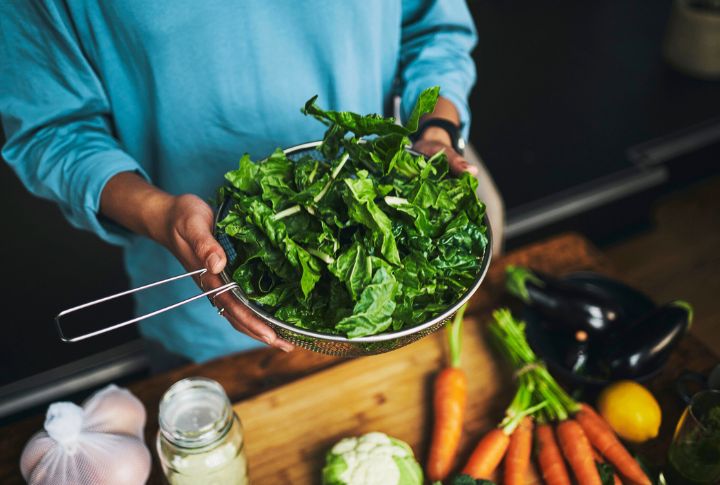
Spinach has ample vitamins and minerals which contribute to lipid profile management. Spinach also contains lutein, a powerful antioxidant that helps prevent cholesterol from oxidizing in the bloodstream, thus reducing the risk of cardiovascular diseases.
Olive Oil
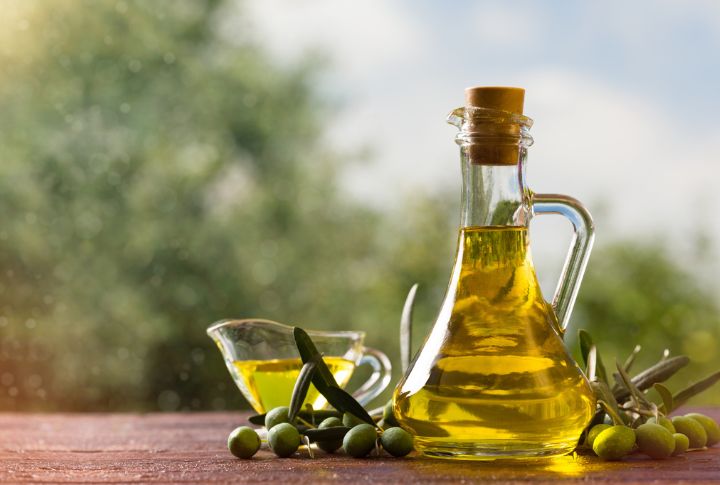
A staple in Mediterranean cuisine, olive oil is known for its properties that help maintain vascular fitness. When used as a replacement for saturated fats, olive oil can bring down LDL percentage and lessen the risk of cardiovascular issues due to monounsaturated fats and antioxidants.
Strawberry
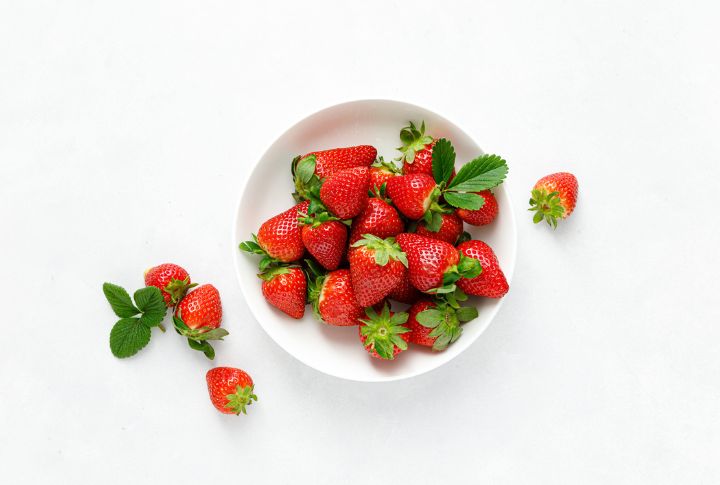
Its high fiber content makes it an intelligent addition to any diet because it can reduce blood vessel thickening. Researchers suggest that anthocyanins, the pigments responsible for berries’ red color, may also help lower bad cholesterol.
Dark Chocolate
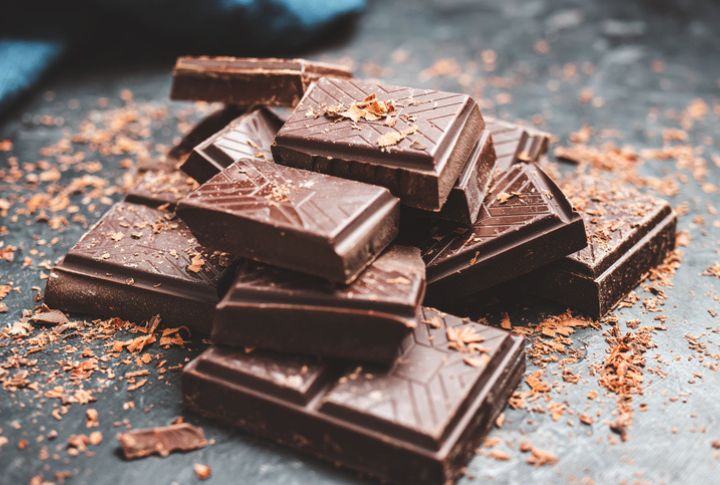
Treats can indeed be beneficial for your health! According to a study, individuals who drank cocoa twice a day for a month saw a decrease in LDL and an increase in HDL cholesterol levels. This positive effect is likely attributed to the abundance of flavonoids, which are antioxidant compounds.
Flaxseeds
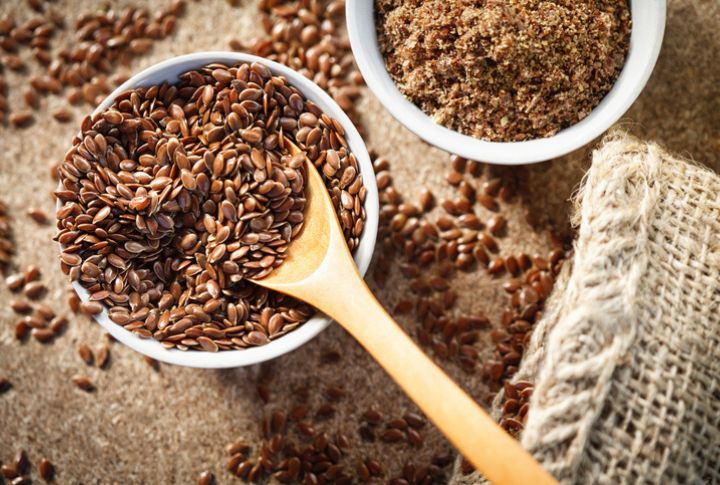
Despite their small size, flaxseeds pack a powerful punch in reducing cholesterol. A tablespoon of cereal, yogurt, or smoothies boosts fiber and healthy fats. The omega-3 fatty acids in flaxseed, a type of polyunsaturated fat, enhance blood vessel function, reduce inflammation, prevent arrhythmias, and lower triglyceride range.
Green Tea
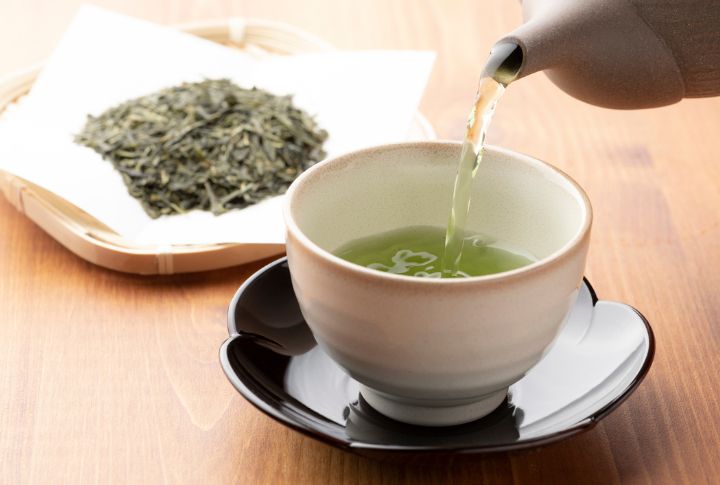
Sipping on green tea can provide several health benefits, including cholesterol management. Green tea contains catechins, antioxidants that help improve cholesterol by balancing triglyceride amounts in the blood.
Garlic
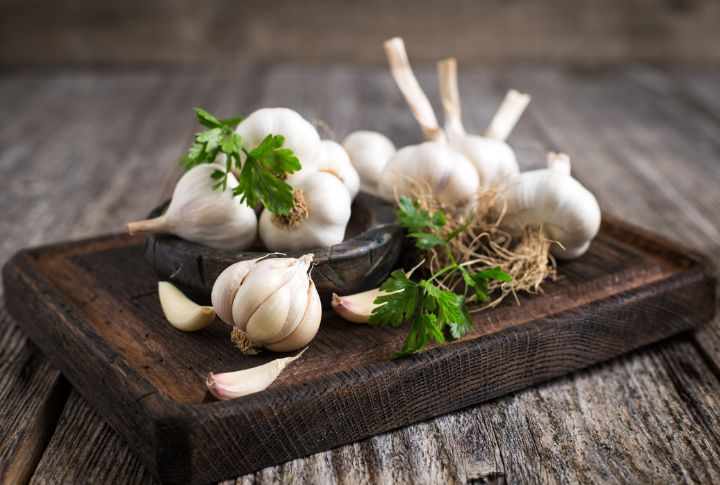
While further research is required, evidence suggests that garlic may help lower cholesterol. Garlic contains a bioactive compound known as allicin, which is believed to play a role in this process. These cholesterol-lowering benefits complement other reported advantages of garlic, such as enhanced immunity, decreased blood pressure, and its antioxidant properties.
Quinoa

As a complete protein, quinoa is an excellent alternative to refined grains for those looking to manage their cholesterol levels. Quinoa and other fiber-rich foods attach to bad cholesterol in the small intestine, decreasing its absorption into the bloodstream. Subsequently, it is transported to the colon for elimination.
Edamame
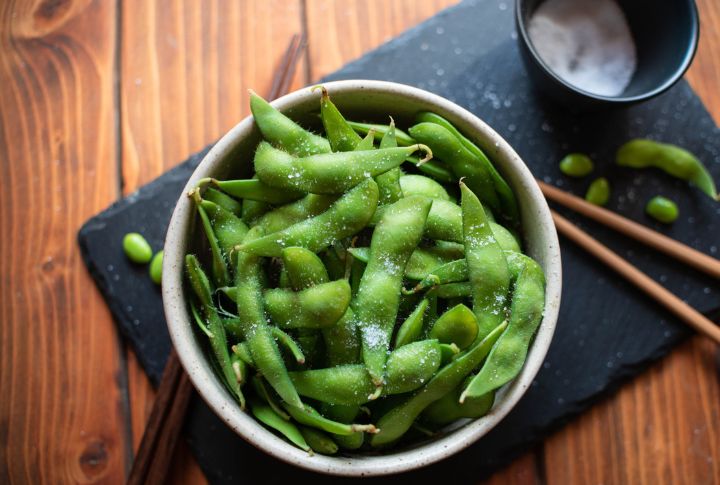
Nutrition experts suggest that edamame’s blend of nutritious fats, soy protein, and fiber reduces bad cholesterol and keeps you full and energized, making it a smart choice for weight loss. By swapping animal protein for soy protein, you’re steering clear of foods directly linked to cardiovascular issues.
Collard Greens
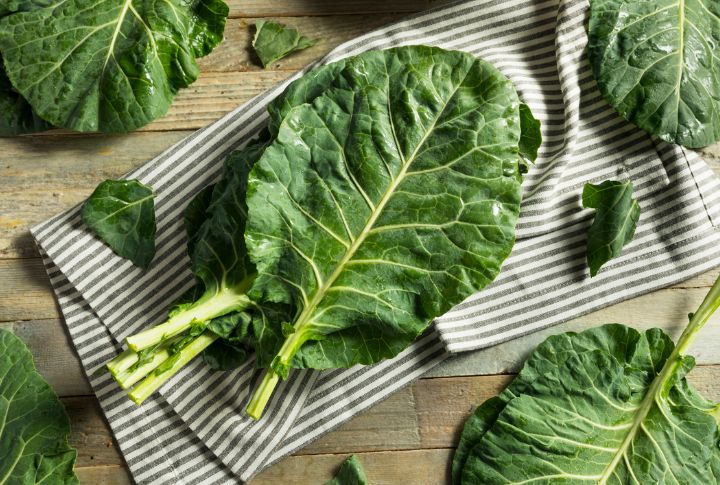
Dark leafy veggies, particularly collard greens, effectively reduce cholesterol levels. These garden products attach to bile acids derived from cholesterol, facilitating their elimination from the body. Consuming a serving of leafy vegetables daily, such as 1 cup of raw collard greens or 1/3 cup cooked, is advised.
